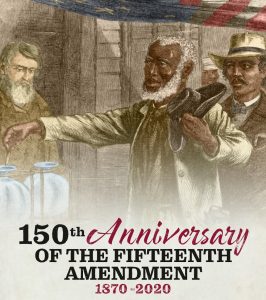 The year 2020 is the 150th anniversary of the 15th Amendment and an election year, making it essential to teach the history of voting rights struggles — and the suppression of voting rights — from 1870 to the present.
The year 2020 is the 150th anniversary of the 15th Amendment and an election year, making it essential to teach the history of voting rights struggles — and the suppression of voting rights — from 1870 to the present.
Because of the importance of the year and the ongoing need to pay more attention to the history of Reconstruction, the Zinn Education Project is offering teachers and other school staff mini-grants to help students learn about and commemorate the 15th Amendment.
Thanks to a Zinn Education Project Teach Reconstruction campaign donor, we can offer $100 for individual classroom projects and $250 for school-wide projects or events. To apply, provide a short description of how you plan to commemorate the 15th Amendment in your class or school and commit to reporting back with a description of your activities and photos. Every two weeks we will review the applications and notify the applicants. Those that are selected will receive the mini-grant and public recognition. We will feature selected projects on the Zinn Education Project website and provide assistance with outreach to local media.
To apply, complete the 15th Amendment Anniversary Mini-Grant Application.
Want to apply but not sure what to propose? Consider these ideas offered by teachers in a 2019 survey:
- Student-organized events for family and/or peers about the 15th Amendment, for example, conducting imaginary interviews with key figures (e.g., Frederick Douglass, Frances Harper); offer dramatic readings of key speeches; show film clips and hold discussions; have a student-led dialogue with people who fought for voting rights in the 1960s and/or today
- Field trip to a local Reconstruction historic site
- Identify and document local 15th Amendment history, add to Make Reconstruction History Visible map
- Guest speaker about the 15th Amendment from a university, historical society, or community organization
- Recording equipment for students to make A/V presentations about the 15th Amendment
- Art supplies for a creative project to share what students learn about voting rights and the 15th Amendment
- Professional development workshops to help fellow teachers learn how to teach about Reconstruction and the 15th Amendment
- Student-run voter registration drive with student-written materials about voting rights and the 15th Amendment anniversary
- Take students to the polls on election day to hand out literature about the 15th Amendment
- Students create activist materials (signs, t-shirts, armbands, etc.) to draw attention to voter suppression on this 15th Amendment anniversary
- A student-created class exhibit, showing key moments in the African American struggle for voting rights including the 15th Amendment
- A class project, documenting voter suppression and the legacy of the Reconstruction Amendments
- Guest speaker from local voting rights organization about how to defend voting rights
- Have students research and document 15th Amendment celebrations in their city. Historian Stephen West notes that there were celebrations in hundreds of communities around the country after ratification in the spring of 1870. Students might search newspaper databases to which they have access to look for reports about their communities. They can refer to commercial databases (some schools and public libraries subscribe to these often pricey collections); Library of Congress’s Chronicling America is one freely available option; and some states have their own, such as California.
Those are only suggestions. How might some extra resources make your dream project possible? Tell us and we’ll try to make it happen in 2020.



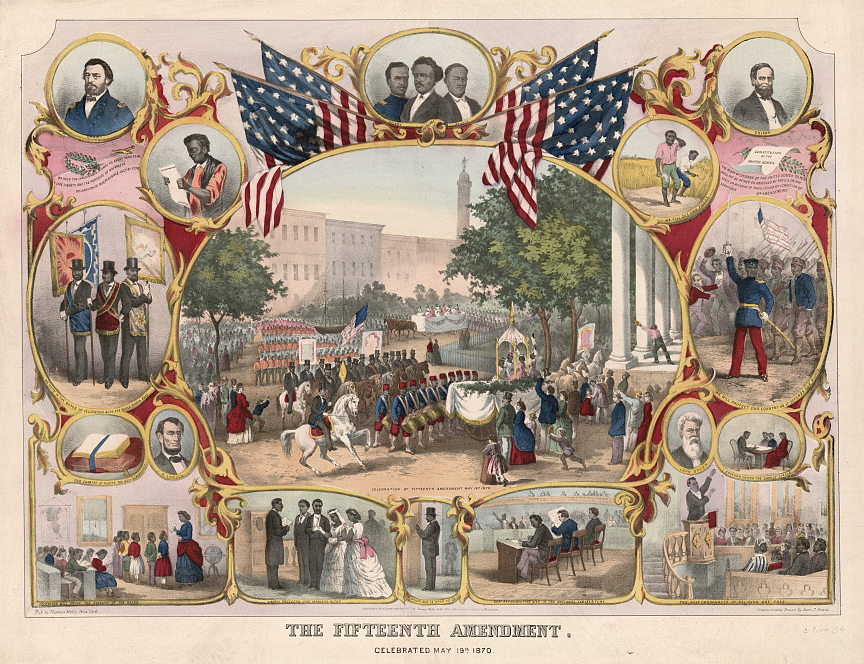
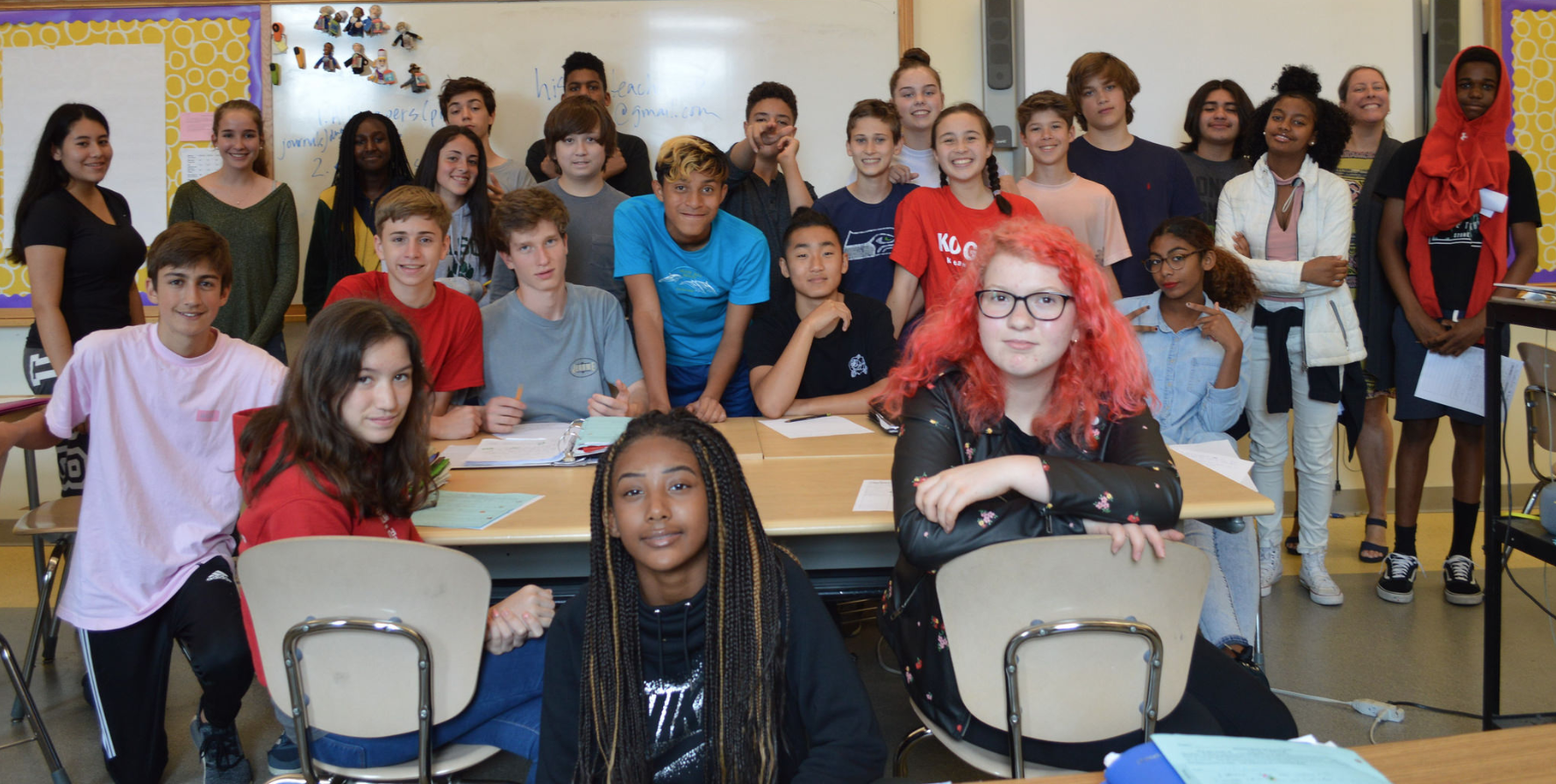
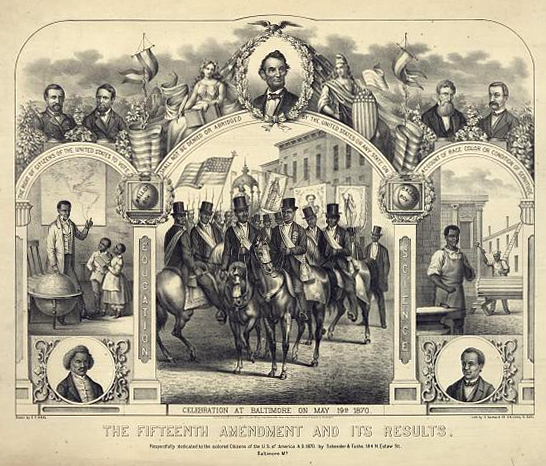
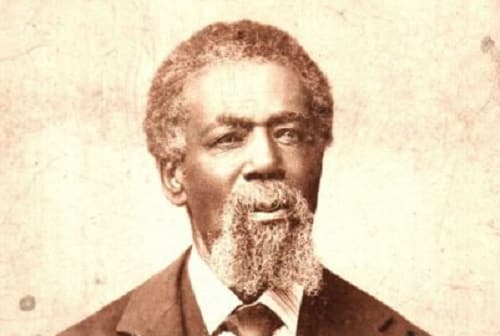





Twitter
Google plus
LinkedIn